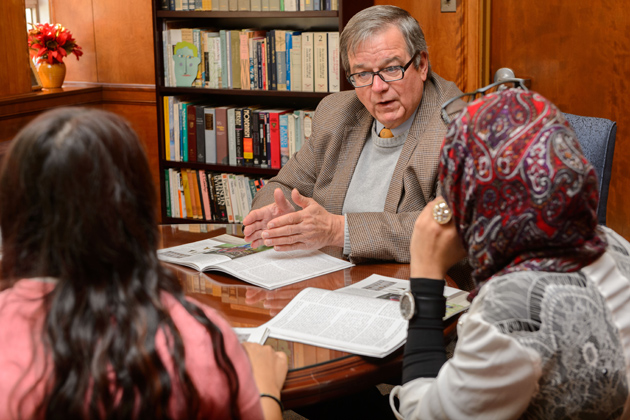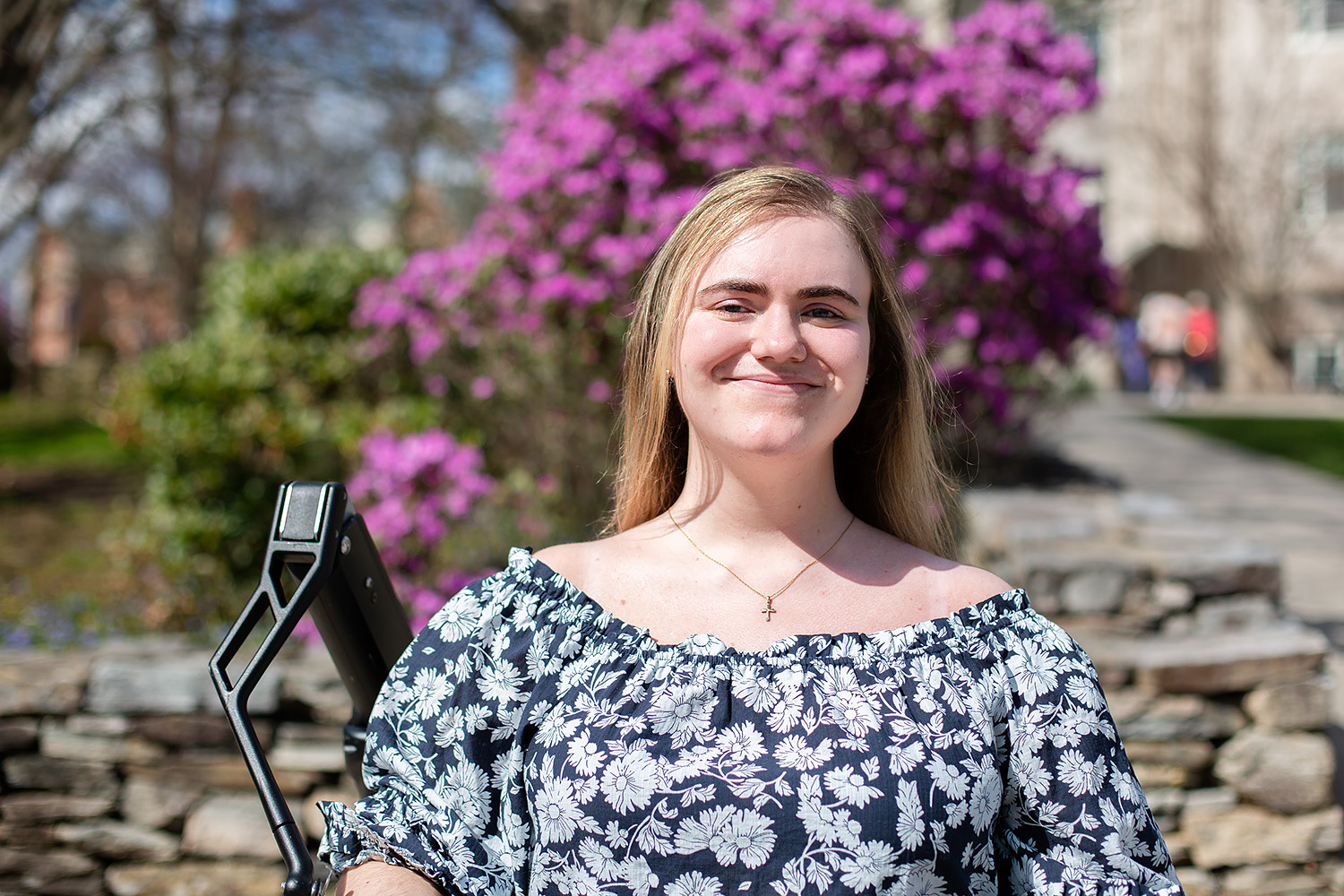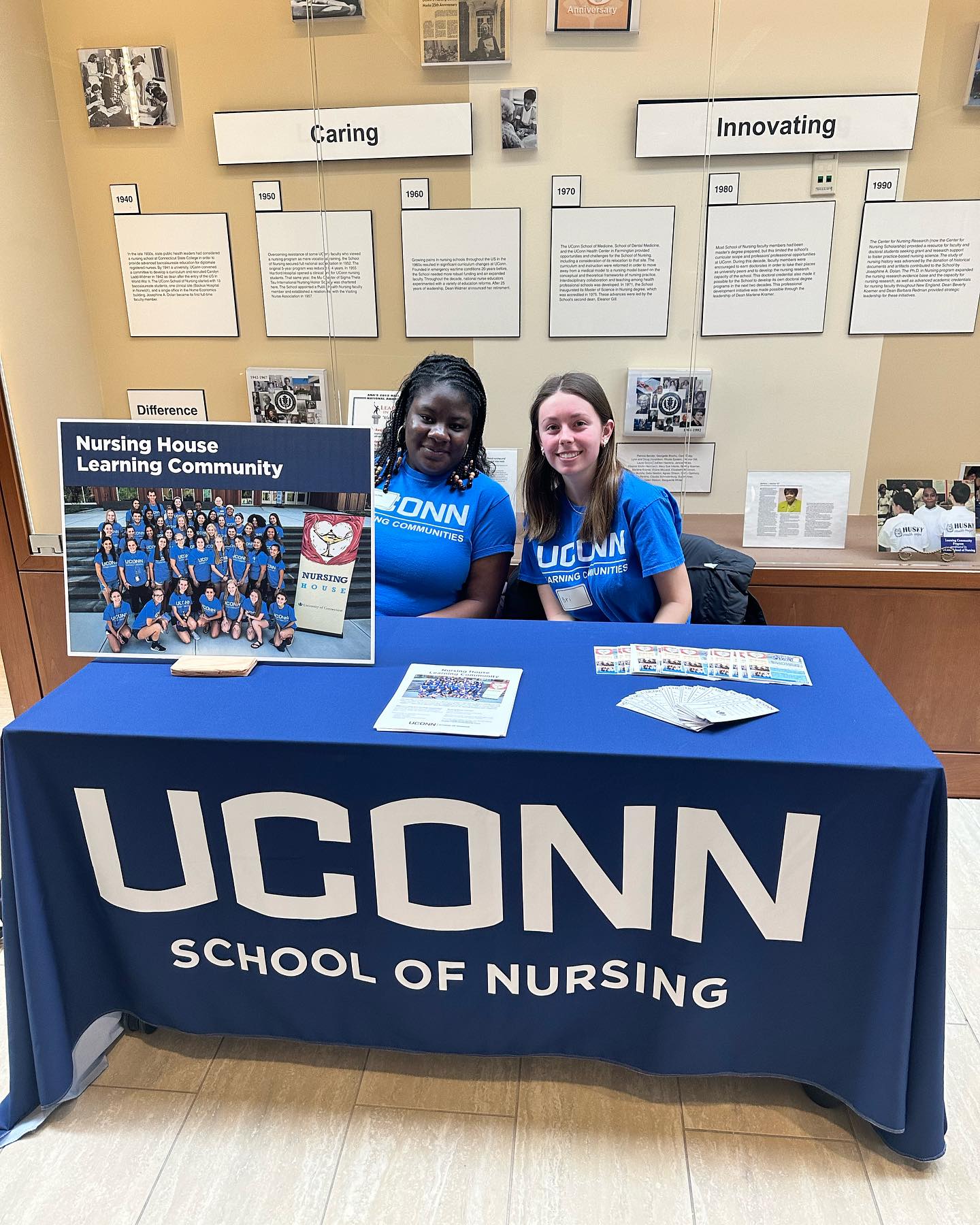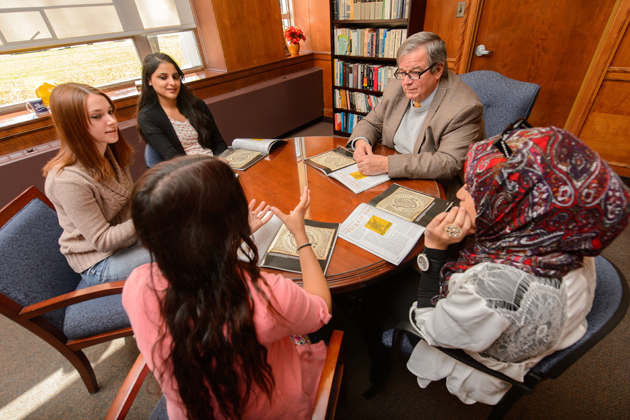
Some state residents may take the Connecticut River for granted, but not the students in American Landscapes: The Connecticut River Valley, an honors course taught by Connecticut State Historian Walter Woodward.
This semester, four students at the Greater Hartford Campus enrolled in this interdisciplinary course, which is designed to promote critical thinking and deep learning experiences for students early in their honors experience. The honors class is a first for the regional campus.
Taught by Woodward, an associate professor of history in the College of Liberal Arts and Sciences, the class is similar to an American Studies honors core course he has taught in Storrs, but with a significant twist.
“We had a small group of four students here [at the Greater Hartford campus] and that gave us the opportunity to actually experience being out on the water,” Woodward says. “It’s one thing to talk about a river; it’s another thing entirely to talk about it after you’ve been out on it.”
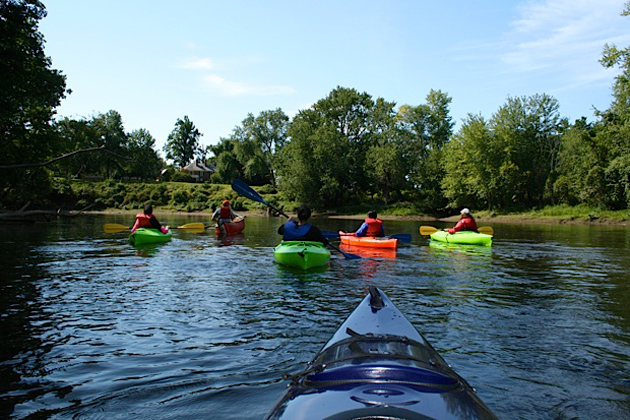
On one of their excursions, the class paddled kayaks from the Farmington River in Windsor – Connecticut’s oldest English settlement, founded in 1633 – down to the Bissell Bridge, which connects the towns of Windsor and South Windsor.
“When you’re out on the water, you get a visceral connection with the river that you can’t get looking at pictures or even standing on the bank,” Woodward notes. “I think that for the students, actually experiencing the place made this a different course for them from that point on.”
Halima Khan ’16 (CLAS), a psychology major from Simsbury, says when she was accepted into the Honors Program, she wanted to take a class that would get her involved: “The fact that [the course] was going to be about the Connecticut River made it all the more intriguing, because it is something that is local to us.”
Woodward agrees the ‘local angle’ helps make the course interesting, especially to New Englanders who may otherwise take the river for granted. “When you drive west on I-84 and come down the long hill just outside of Manchester, you pass through Hartford and then go up Prospect Hill in West Hartford,” he says, “and what you are doing is traveling through an 18,000 year old lake bed – through literally thousands of years of sedimentation. I think it’s pretty safe to say that most people are oblivious to that fact.
“These students will never be able to make that drive again without thinking about it at some level,” he adds. “What this course does is give them a sense of geological space and geological time.”
Now [the students are] much more in touch with the place where they live.
The interdisciplinary course moves from geology into the history of the region, including the time between the Pequot War of 1637 through the end of the French and Indian War in 1763 – a time frame when the historian refers to the Connecticut River as ‘the river of war.’ It then moves on to the Industrial Revolution personified by the gun manufacturing of Samuel Colt.
“There was a remarkable transformation from the Colonial period to the Industrial Revolution that took place in the space of only about 50 years,” Woodward says.
Hayley Snell ’16 (CLAS), an ACES student from Marlborough with an interest in a career in finance, wasn’t sure what she was getting into when she enrolled in the course. But she was interested in finding something to challenge her in her first honors experience.
“I decided to take the AMST 1700 class because I wanted to see what a real honors workload would be …,” she says. “At first I wasn’t sure that the topic of the class would really interest me, but after our first field trip, kayaking on the Connecticut River, I truly appreciated the subject. I would definitely recommend this class to other students.”
The course, according to Woodward, follows a path from pre-history to the present, including 20th- and 21st-century issues such as water pollution, fishery management, and even tourism.
“The river is a really nice vehicle with which to talk about the tension between production and quality of life …,” he says, “and the absolutely unintended but inescapable cost that an unconscious focus on production has inflicted upon the environment.
“There was real change for the better starting in the 1960s and 70s when people began to realize what a jewel the Connecticut River really is,” he adds. “That may seem like ancient history to these students, but now they’re aware of how much progress has been made, and they’re much more in touch with the place where they live.”
Jennifer Lease Butts, associate vice provost for enrichment programs and director of the Honors Program, is an enthusiastic supporter of the regional campuses, and she notes that students from all UConn campuses are welcome to participate in the honors experience.
“Our goal is to make sure that all qualified students realize they are welcome to participate in the Honors Program,” she says, “and we want to make sure our students at the regional campuses know that definitely includes them. Those who decide to transfer to Storrs as upperclassmen will be welcomed to the honors community here when they arrive, but we want all our students to know they have a chance to be a part of our program, wherever they may be enrolled.”
